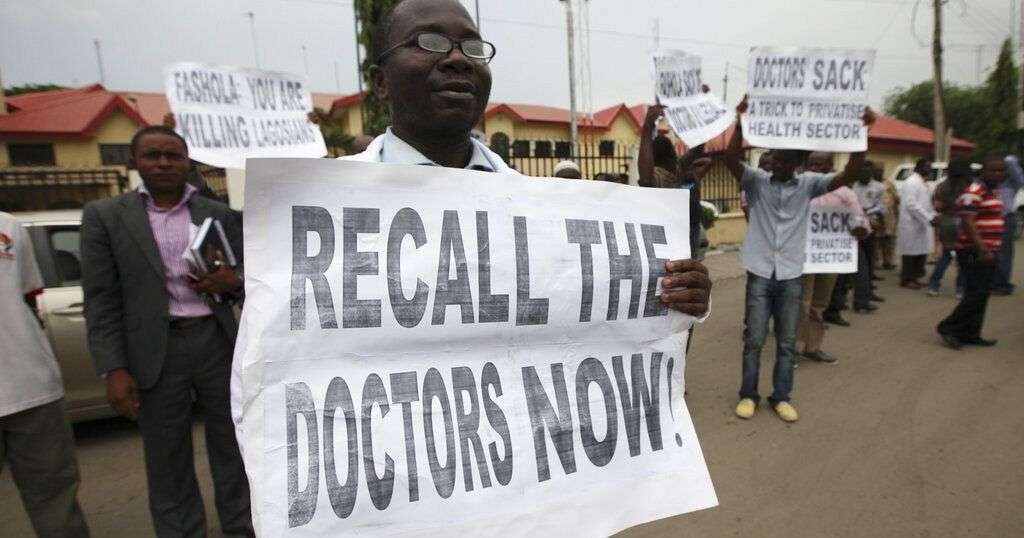Abuja, Nigeria – (African Boulevard News) – Nigeria is currently facing a healthcare crisis as doctors across the country have embarked on an indefinite nationwide strike. This development has sent shockwaves through the nation, leaving many citizens concerned about the future of their healthcare.
Less than 48 hours ago, the Speaker of the House of Representatives, Tajudeen Abass, pleaded with the doctors for understanding and assured them that the new administration would prioritize healthcare. However, it seems that their pleas have fallen on deaf ears as doctors have decided to take matters into their own hands.
The strike action is a result of the doctors’ frustration with the Nigerian government’s failure to meet their demands. Key issues at the center of the dispute include improved working conditions, increased funding for healthcare facilities, and the implementation of a revised salary structure. The doctors argue that these demands must be met in order to provide quality healthcare services for the Nigerian population.
The impact of this strike is already being felt by patients who require medical attention. Hospitals across the country are struggling to cope with the sudden absence of doctors, leading to a significant decrease in the quality and availability of healthcare services. This has left many patients in a state of distress, as they are unable to receive the treatment they desperately need.
In addition to the immediate impact on patients, there are concerns about the long-term effects of this strike. The strike has the potential to exacerbate the existing healthcare inequalities in Nigeria, with the most vulnerable members of society being the hardest hit. The lack of access to medical care could lead to an increase in preventable deaths and the further spread of diseases.
The Nigerian government has yet to respond to the doctors’ demands, raising questions about their commitment to solving this crisis. Industry experts and stakeholders have criticized the government for failing to prioritize the healthcare sector and address the concerns of healthcare professionals.
Dr. Adebayo Olaleye, the President of the Nigerian Medical Association, expressed his disappointment with the government’s lack of action, stating, “We have been pushed to the wall, and we have no choice but to embark on this strike. Our healthcare system is in dire need of urgent attention, and we cannot continue to work under such conditions.”
The indefinite nationwide strike by doctors in Nigeria has created a healthcare crisis that demands urgent attention. As the strike enters its first day, patients are left in a state of uncertainty, unsure of when they will receive the medical care they desperately need. The Nigerian government must prioritize the healthcare sector and engage in meaningful dialogue with doctors to find a solution that benefits all parties involved. Failure to do so will only deepen the divide and prolong the suffering of the Nigerian people.

